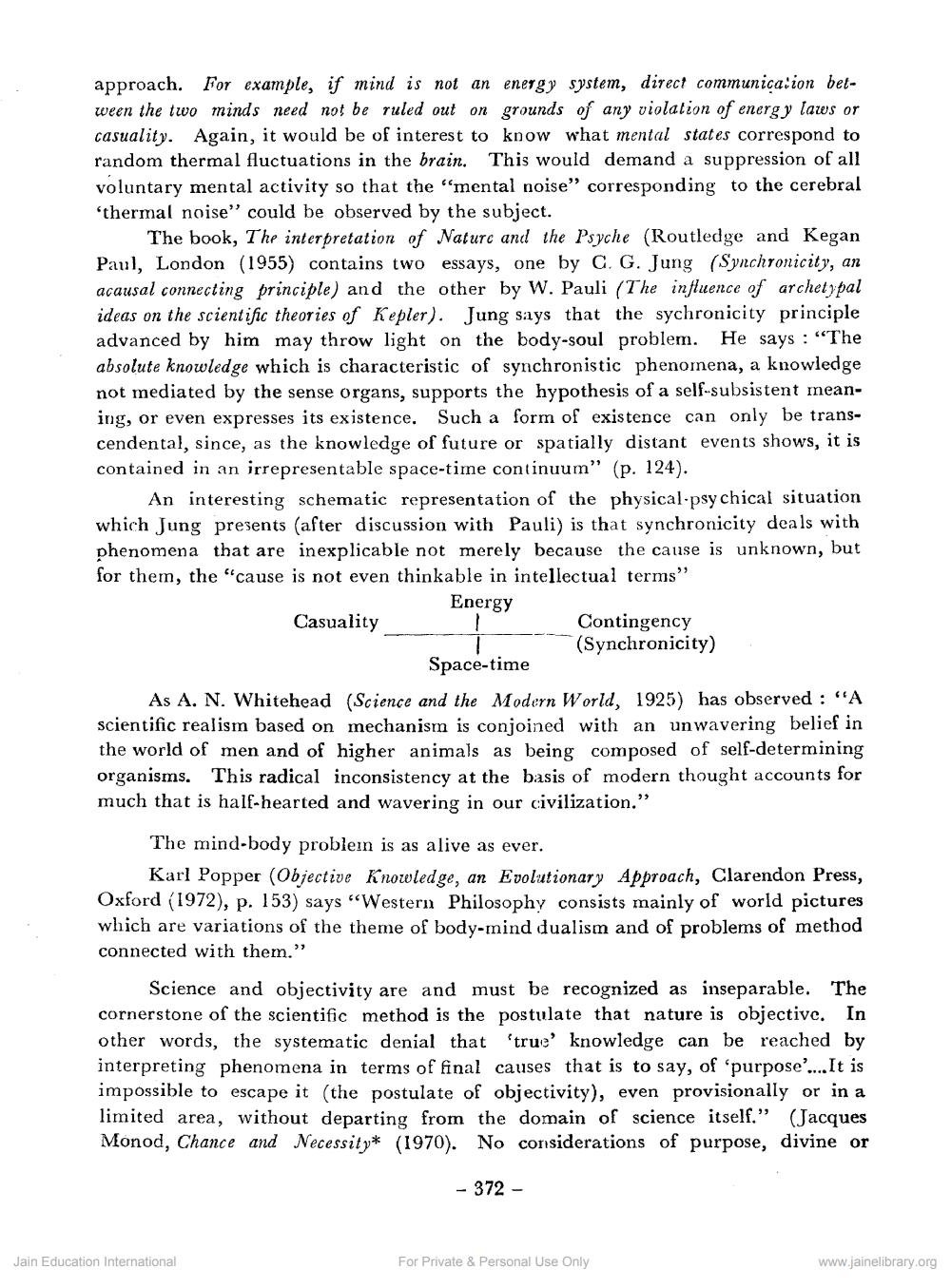Book Title: Reality and Physics Some Aspects Author(s): D S Kothari Publisher: Z_Kailashchandra_Shastri_Abhinandan_Granth_012048.pdf View full book textPage 8
________________ approach. For example, if mind is not an energy system, direct communication between the two minds need not be ruled out on grounds of any violation of energy laws or casuality. Again, it would be of interest to know what mental states correspond to random thermal fluctuations in the brain. This would demand a suppression of all voluntary mental activity so that the "mental noise" corresponding to the cerebral 'thermal noise" could be observed by the subject. The book, The interpretation of Nature and the Psyche (Routledge and Kegan Paul, London (1955) contains two essays, one by C. G. Jung (Synchronicity, an acausal connecting principle) and the other by W. Pauli (The influence of archetypal ideas on the scientific theories of Kepler). Jung says that the sychronicity principle advanced by him may throw light on the body-soul problem. He says : "The absolute knowledge which is characteristic of synchronistic phenomena, a knowledge not mediated by the sense organs, supports the hypothesis of a self-subsistent meaning, or even expresses its existence. Such a form of existence can only be transcendental, since, as the knowledge of future or spatially distant events shows, it is contained in an irrepresentable space-time continuum" (p. 124). An interesting schematic representation of the physical.psychical situation which Jung presents (after discussion with Pauli) is that synchronicity deals with phenomena that are inexplicable not merely because the cause is unknown, but for them, the "cause is not even thinkable in intellectual terms" Energy Casuality Contingency (Synchronicity) Space-time As A. N. Whitehead (Science and the Modern World, 1925) has observed : “A scientific realism based on mechanism is conjoined with an unwavering belief in the world of men and of higher animals as being composed of self-determining organisms. This radical inconsistency at the basis of modern thought accounts for much that is half-hearted and wavering in our civilization." The mind-body problein is as alive as ever. Karl Popper (Objective Knowledge, an Evolutionary Approach, Clarendon Press, Oxford (1972), p. 153) says "Western Philosophy consists mainly of world pictures which are variations of the theme of body-mind dualism and of problems of method connected with them.” Science and objectivity are and must be recognized as inseparable. The cornerstone of the scientific method is the postulate that nature is objective. In other words, the systematic denial that 'true' knowledge can be reached by interpreting phenomena in terms of final causes that is to say, of 'purpose.... It is impossible to escape it (the postulate of objectivity), even provisionally or in a limited area, without departing from the domain of science itself.” (Jacques Monod, Chance and Necessity* (1970). No considerations of purpose, divine or - 372 - Jain Education International For Private & Personal Use Only www.jainelibrary.orgPage Navigation
1 ... 6 7 8 9 10
